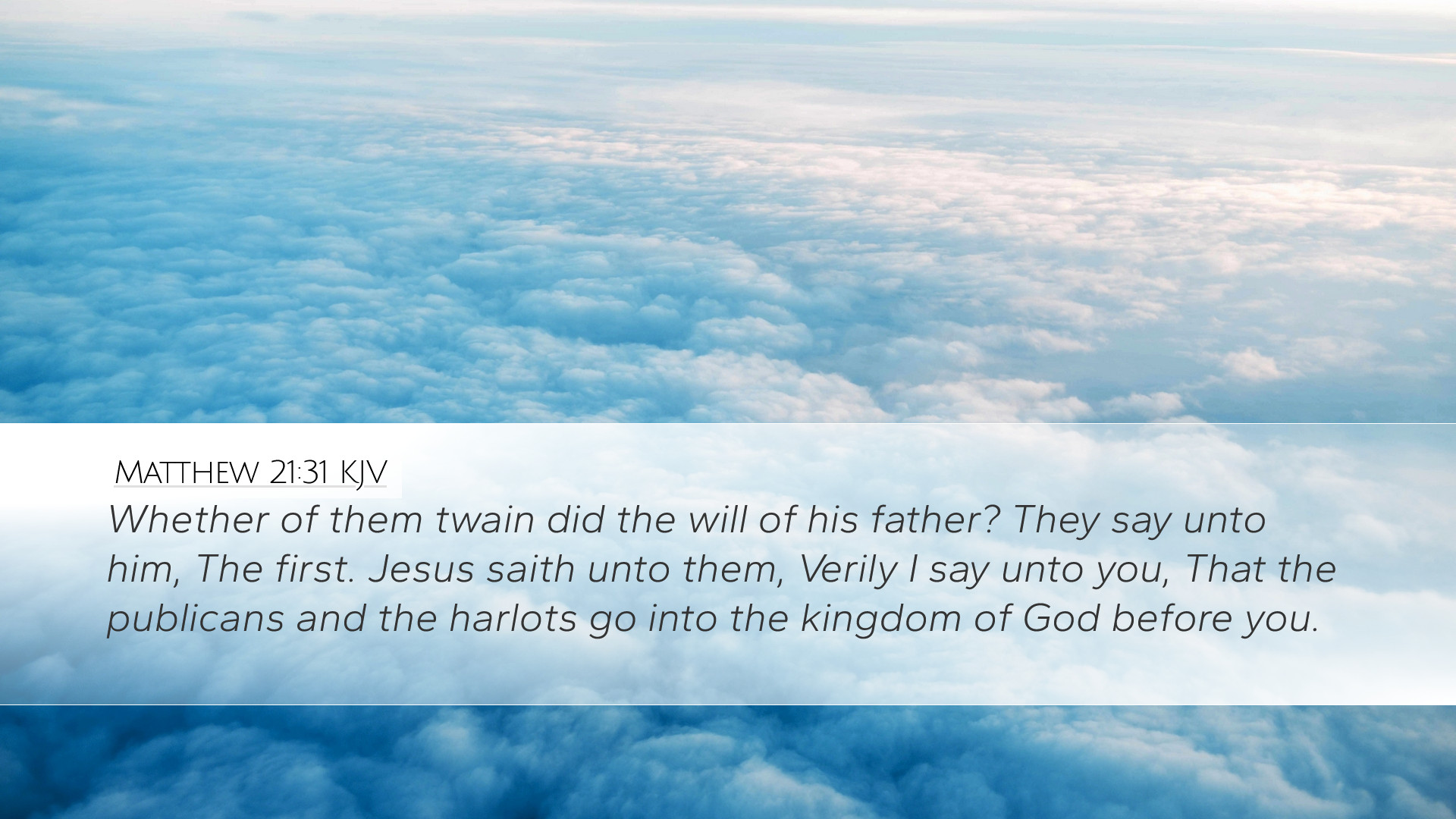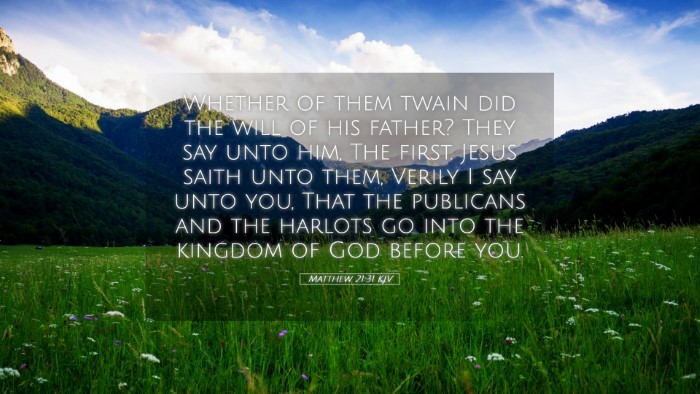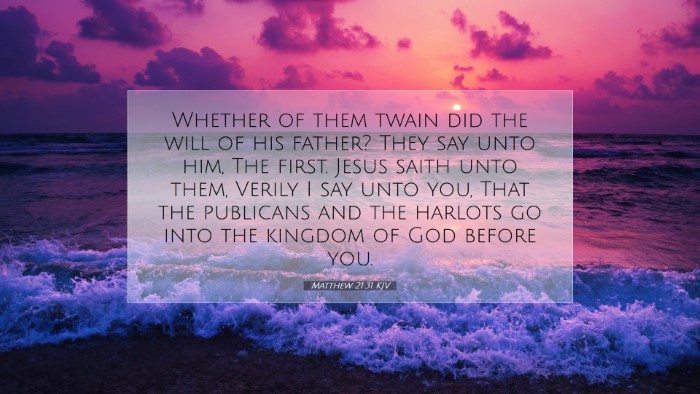Commentary on Matthew 21:31
Verse: "Whether of them twain did the will of his father? They say unto him, The first." (Matthew 21:31, KJV)
Introduction
This verse is part of the parable of the two sons, which is an expression of Jesus' moral teaching about obedience and the nature of true repentance. In this commentary, we will explore the context, interpretation, and implications of this passage, drawing from renowned public domain commentaries to provide a rich, comprehensive understanding suitable for pastors, students, theologians, and Bible scholars.
Context of the Passage
Matthew 21:28-32 presents a parable where Jesus speaks to religious leaders, confronting their hypocrisy and blindness to the truth. The parables were common teaching methods used by Jesus, often with a deeper moral and theological implication.
The Setting
In the surrounding context, Jesus had just cleansed the temple and confronted the religious authorities. They questioned His authority, which sets the stage for this parable.
The Characters
The father in the parable represents God, while the two sons symbolize different responses to God's call. The first son initially refuses to obey but later repents, while the second son claims he will obey but fails to do so.
Interpretation of the Verse
Insights from Matthew Henry
Matthew Henry notes that the question posed by Jesus emphasizes the importance of action over mere words. While the religious leaders responded correctly that the first son did the will of the father, they failed to recognize their own failure to comply with God's commandments, illustrating their hypocrisy.
Insights from Adam Clarke
Adam Clarke elaborates on the significance of the first son’s change of heart. The willingness to eventually do the father’s will signifies true repentance, which aligns with God's grace. Clarke suggests that this reflects a biblical theme where God's mercy extends to those who genuinely turn back to Him, regardless of their initial disobedience.
Insights from Albert Barnes
Albert Barnes comments that the parable is a reflection of the broader religious community in Israel at the time. The publicans and harlots represent those marginalized by society who, despite their sinful past, are more open to repentance and faith, unlike the proud religious leaders who reject Jesus' authority.
Theological Implications
This passage raises several critical theological reflections:
- Repentance: True repentance is marked by a change of heart and action, pointing towards a relational understanding of faith that God desires from His people.
- God’s Invitation: The invitation to repent is open to all, regardless of past actions. In this sense, the gospel message is inclusive and transformative.
- Actions vs. Words: The Christian faith is not merely about professing beliefs but about the fruits of those beliefs manifesting in one's actions and obedience to God.
Applications for Believers
Drawing from this commentary, believers are encouraged to reflect on their own responses to God's call:
- Self-Examination: Are we like the first son, aware of our shortcomings, yet willing to realign our lives with God’s will?
- Authenticity: Do we prioritize authentic obedience over superficial declarations of faith?
- Evangelism: Recognize that those deemed unlikely or sinful may be more responsive to the gospel than those who are self-righteous.
Conclusion
Matthew 21:31 serves as a powerful reminder of the nature of true obedience and repentance. Understanding this scripture through the insights of respected commentators enriches our grasp of God's message. It emphasizes that God desires heartfelt submission and action over mere empty promises, and it calls for believers to embody this truth in their daily lives.


